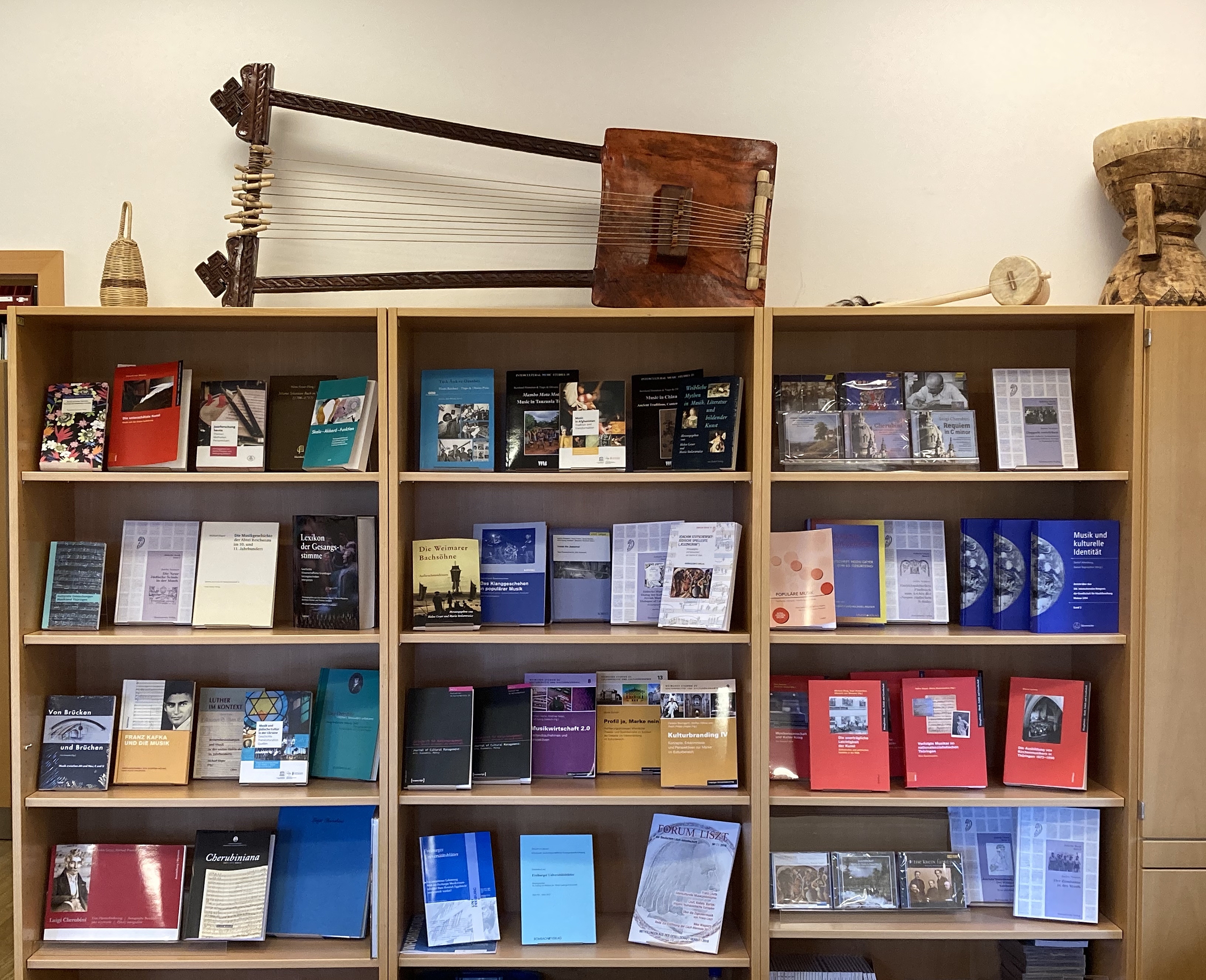M.A. course in Arts Management
Master’s degrees are consecutive or postgraduate courses, i.e. they follow on from a completed degree. The Master’s degree in Arts Management, offered at the Department of Musicology Weimar-Jena, generally follows a Bachelor of Arts degree. In terms of content, it is based on the B.A. course in Intercultural Music and Events Management, offered by the Department of Musicology, and culminates in a ‘Master of Arts’ degree (M.A.). The standard duration is four semesters.
Half of the M.A. in Arts Management serves to deepen selected politico-cultural (concepts of the culture state and culture economy), economic (including cultural monitoring and cultural branding) and academic (developments of modern and post-modern) content, methods and theories, on the basis of the fundamental skills gained during the B.A. studies. During the other half, students specialise by selecting a study profile in a particular sub-area within the subject of Arts Management or Musicology. The following profiles are offered within the M.A. in Arts Management:
Eine Hälfte des M.A. Kulturmanagement dient der Vertiefung ausgewählter kulturpolitischer (Kulturstaats- und Kulturwirtschaftskonzepte), -ökonomischer (u. a. Kulturcontrolling, Kulturbranding) und -wissenschaftlicher (Entwicklungen von Moderne und Postmoderne) Inhalte, Methoden und Theorien auf der Basis der im B.A. erworbenen Grundkenntnisse. Während der jeweils anderen Hälfte spezialisieren sich die Studierenden durch die Wahl eines Studienprofils auf einem bestimmten Teilgebiet innerhalb des Studienfaches Kulturmanagement bzw. Musikwissenschaft. Folgende Profile werden im M.A. Kulturmanagement angeboten:
The detailed regulations, module catalogues, sample timetables and lecture lists can be found under the corresponding links. If you have any questions, please contact the student counselling service, the student representatives or the Arts Management Instagram channel.
Admission requirements
For all profiles:
- Degree with professional qualification of relevance to the subject (Master’s Degree, Diploma, Bachelor’s Degree, or similar) with an overall mark of at least 2.5 (topics of relevance to the subject include, in particular, courses with subjects in cultural studies, musicology and business studies, or other courses, with at least 30 credits, in the field of Arts Management)
- Knowledge of two modern foreign languages (five years of lessons without an A-levels examination, three years of lessons with an A-level or B1 level certificate, in line with the Common European Framework of Reference)
- For overseas applicants: proof of German proficiency at language level C1 through, for example, the ‘Deutsche Sprachprüfung für den Hochschulzugang’ (DSH), the ‘Test Deutsch als Fremdsprache’ (TestDaF), ‘The European Language Certificates’ (telc) or comparable language examinations, e.g. Goethe certificates. We recommend using a certified language school
- Relevant professional experience, generally gained through an internship lasting at least six weeks
- Participation in an application interview
For the International Arts Management profile, knowledge of the field of intercultural communication is important.
Application process
In the case of the M.A. course in Arts Management, the application is made via the UoM’s online portal. After the documents have been received, the director of the Arts Management course reviews whether the requirements for the degree have been met. This process includes an interview, for which the applicant will receive a separate invitation. If the conditions are met, the applicants receive a decision of acceptance, paired with a request to enrol at the UoM. Enrolment is done in writing, using the appropriate form, and payment of the current semester fee is a prerequisite thereof.
Please note: your application is only valid once you have successfully completed your application online and sent all your application documents by post. Additional information regarding application deadlines and documents can be found under ‘Application’.
